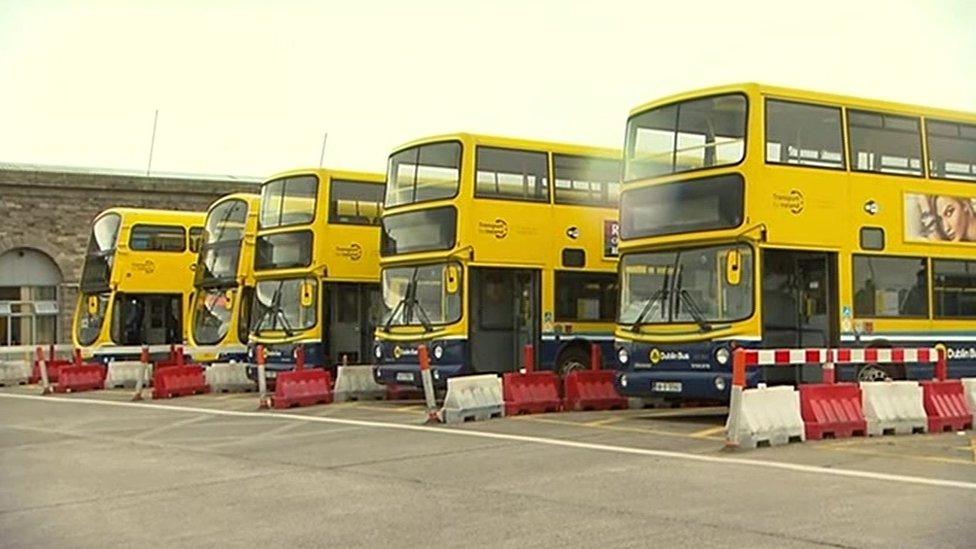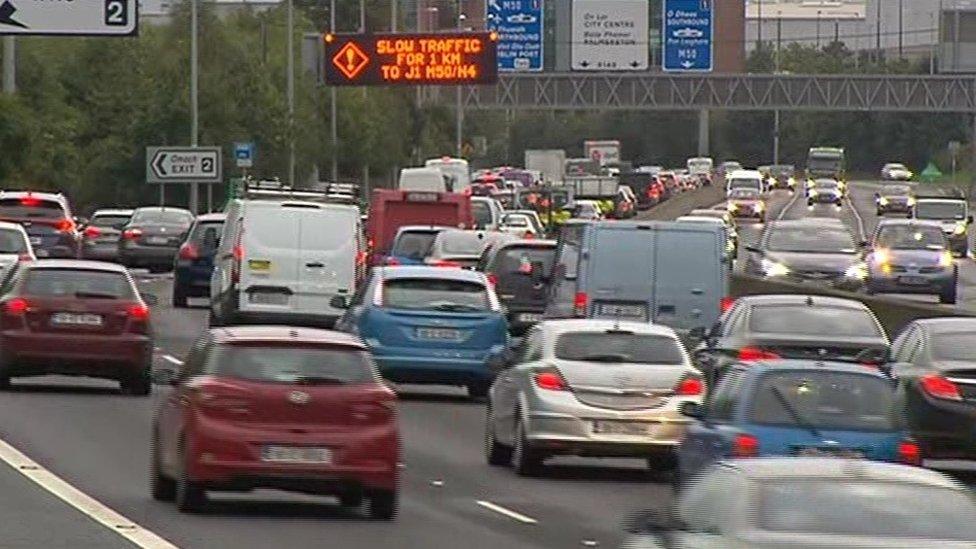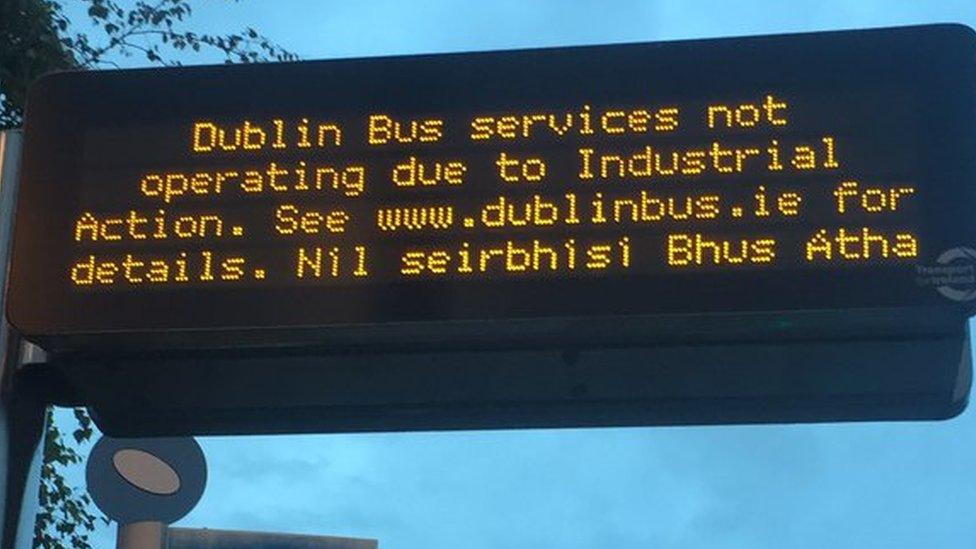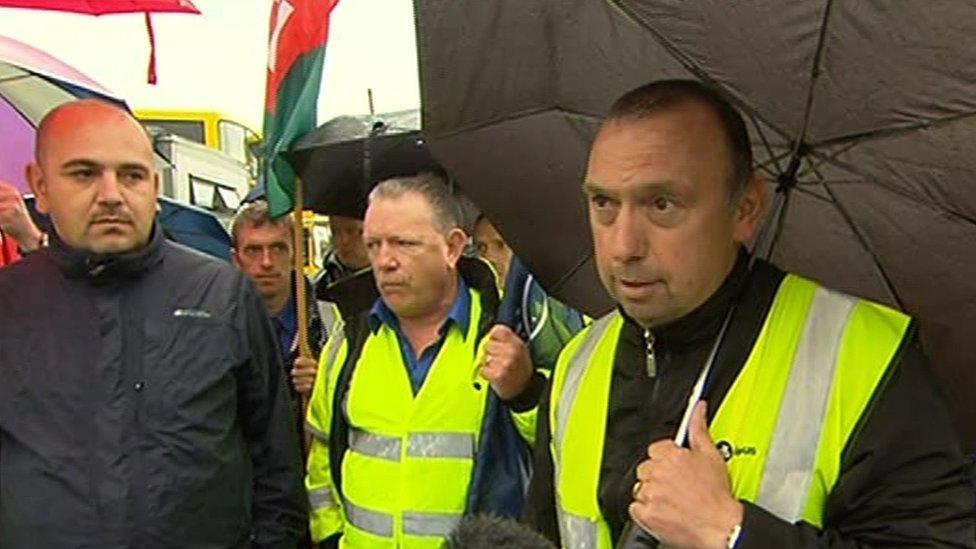Dublin bus strike: Travel disruption on third day of strike
- Published

Dublin Bus has said it expects its services to operate as normal on Saturday morning
More than 400,000 Dublin Bus customers are facing a third day of travel disruption as staff at the company continue their strike over pay.
So far there is no sign of any intervention that could break the deadlock between management and workers.
Union representatives are meeting on Thursday morning to decide whether to escalate their industrial action.
An all-out strike has not been ruled out.
However, sources suggested additional one or two-day stoppages are more likely.

Bus lanes remain closed to private cars
Dublin Bus has urged staff to attend the Workplace Relations Commission for negotiations but stressed that it cannot exceed the three-year 8.25% pay deal, with no productivity, awarded by the Labour Court.
It said it is prepared to discuss further increases based on productivity.
Unions are demanding a basic increase of 15% over three years before they will discuss productivity, and object to what they call preconditions.
The Republic's Minister for Transport Shane Ross has said his department will not fund pay hikes.
Speaking to Irish broadcaster RTÉ on Wednesday, Mr Ross said: "It's not a matter for the Minister for Transport and we are not going to produce the government's - the taxpayer's - chequebook to sort this problem.

Two more 48-hour strike actions are planned for this month
"It will be sorted between the unions and the management and we're not going to be a soft touch for either management or unions."
Dublin Bus has said each day of the strike costs the company in excess of €600,000 (£510,081).
"We remain willing and open to engage with the trade unions and urge them to return to talks as provided for in the Labour Court Recommendation, so that we can work together to move forward and find a resolution to the current dispute," Dublin Bus said in a statement.
Meanwhile, the Director of Policy and Advocacy at the National Council for the Blind has said people with disabilities are being seriously affected by the strike.
Elaine Howley told RTÉ many people are being forced to take annual leave because they cannot get to work, while others will be unable to leave their homes.

Dublin Bus employees told Irish broadcaster RTÉ they did not want to be on strike but felt they needed more than the current offer on the table
"We did a survey recently and 91% of people surveyed depend on the bus for their daily activity so it's very inconvenient to say the least," she said.
Police have said bus lanes are only for use by taxis, emergency vehicles and vulnerable road users such as cyclists while the strike is on.
The dispute arose after Dublin Bus unions rejected a Labour Court recommendation of a general 8.25% pay award for employees over a period of three years (or 2.75% per year) without productivity changes.
Dublin Bus has said it accepts the recommendation, which it said will add 30m euros (£25.29m) to payroll costs over that period.
However, the company estimates that the 15% sought by the unions would cost at least 50m euros (£42.17m), which it says it cannot afford.